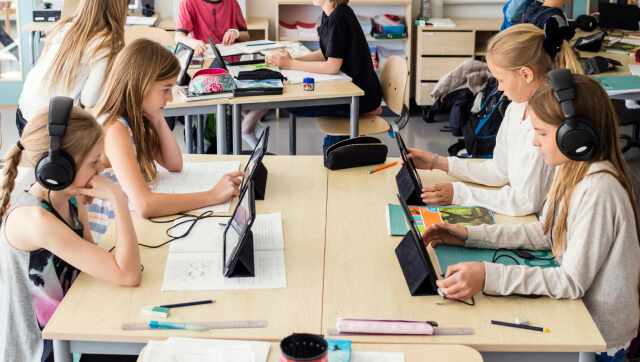6 key areas of expertise to help become a successful teacher
August 16, 2024
Read blog post »
Understanding the unique challenges of teaching adults
August 14, 2024
Read blog post »
10 must-have literacy apps for early childhood education
May 10, 2024
Read blog post »
5 reasons to incorporate technology into your classroom
September 28, 2023
Read blog post »
Explore 5 potential careers in education
April 11, 2023
Read blog post »
What can you do with a special education degree?
September 21, 2019
Read blog post »
Five ways to be productive, not just busy
August 15, 2019
Read blog post »
What can you do with an EdD?
March 21, 2019
Read blog post »
The difference between a PhD in education and an EdD
February 07, 2019
Read blog post »
Three essential EdTech tools for K-12 educators
December 11, 2018
Read blog post »
6 tips for transitioning to online teaching
December 05, 2018
Read blog post »
How to prepare for a job teaching in higher education
October 23, 2018
Read blog post »
Four encore careers for teachers outside of the K-12 classroom
July 19, 2018
Read blog post »
What can you do with an early childhood education degree?
July 03, 2018
Read blog post »
Professional development for teachers: taking EdTech to the next level
August 23, 2017
Read blog post »
How to deal with a flipped classroom flop
September 13, 2016
Read blog post »
Preparing for career advancement while earning your degree
August 22, 2016
Read blog post »
Their journey to the PhD: Ana’s story in education
June 09, 2016
Read blog post »
Ten questions with Capella education faculty member Dana Sparkman, PhD
October 14, 2015
Read blog post »
In the field: how K-12 teachers are using technology in the classroom
September 21, 2015
Read blog post »
From teacher to administrator: what does it take?
July 10, 2015
Read blog post »
Is a flipped classroom the future of education?
January 12, 2015
Read blog post »
6 essential soft skills for k-12 teachers
Read blog post »


